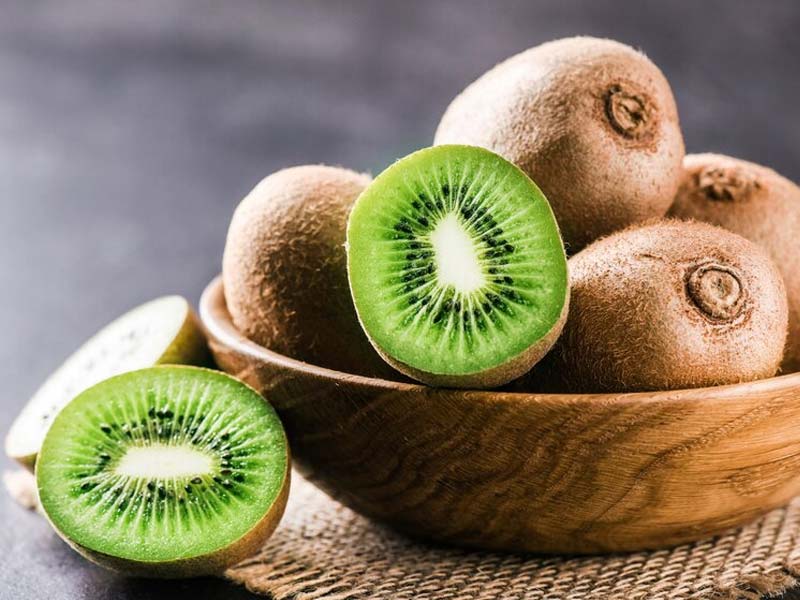Kiwi is a low-calorie, nutrient-dense fruit with a high vitamin C content that can also be a rich source of dietary fibre. Still more minerals can be found in kiwis, including magnesium, potassium, vitamin A, vitamin C, vitamin E, and vitamin K.

Let’s examine the macro and micronutrient breakdown of this fruit in detail. In one raw kiwi, there are:
Top 7 Health Advantages of Kiwi Fruit
Why therefore should you buy an abundance of kiwi fruit? Here are ten reasons why you should start eating kiwis as a snack.
1) Packed with Vital Nutrients
Apart from its delightful and sweet flavour, kiwis are rich in micronutrients like folate, copper, potassium, and vitamin C. Copper promotes proper collagen synthesis and connective tissue. Potassium is essential for controlling blood pressure and for maintaining the fluid balance of cells. Additionally, kiwi fruit has a very high content of vitamin C, which is an essential antioxidant in the body and can help the immune system.
2) Proven to Improve the Quality of Sleep
Consuming kiwis may also enhance the quality of your sleep. An intriguing study discovered that giving persons with sleep issues kiwis for four weeks improved the quality of their sleep. A good night’s sleep is crucial for controlling your weight, emotions, and many other health issues. Your food can significantly affect your sleep in a variety of ways.
3) Vital Fatty Acids Are Present in Kiwi Seeds
Small levels of some good fats, namely polyunsaturated and monounsaturated fats, can also be found in the black seeds that are inside kiwis. It’s possible that kiwis don’t contain all the omega-3 fatty acids that some have claimed they have. Alpha-linolenic acid (ALA), a precursor fatty acid to the “active” omega 3 fats DHA and EPA, is actually present in kiwis.
4) Boost Digestive Wellbeing
More than two grammes of fibre, which is necessary for a healthy digestive system, may be found in one kiwi. Researchers that examined the fibre content of kiwis discovered that roughly one-third of the fruit is soluble fibre and the other two-thirds is insoluble fibre.
5) Excellent supply of antioxidants
Polyphenols, which are antioxidants, are also abundant in kiwis. Kiwis contain phytochemical antioxidants like phenols and carotenoids in addition to all the vitamins and minerals we’ve already covered.
Antioxidants are known to be hazardous to general health because they aid to minimise the impacts of free radicals and oxidative stress. Particularly phenols may help lower the chance of developing certain illnesses, like age-related ailments.
6) May Improve Skin Conditions
Vitamin C has several health benefits, including protection of your skin and immune system, due to its antioxidant qualities and function in the synthesis of collagen. Enhancing skin elasticity, colour, and texture can be achieved by increasing vitamin C intake through fruits and vegetables, according to a review comparing the effects of topical application of vitamin C with vitamin C ingestion (through supplements).
Also read: Does IVF have control over the Gender of the Child?
7) Could Encourage Improved Metabolic Health
Considering the abundance of nutrients, antioxidants, fibre, and low GI found in kiwi fruit, it is reasonable to suggest that eating kiwi fruit in conjunction with a well-balanced and healthful diet may promote improved metabolic health.
For instance, one study’s participants’ blood pressure decreased after consuming three kiwis every day for three weeks. According to additional study, kiwi fruit’s low GI and high fibre content make it a generally safe choice for the best blood sugar reactions. For the best support for your glucose, pair with some protein!

























